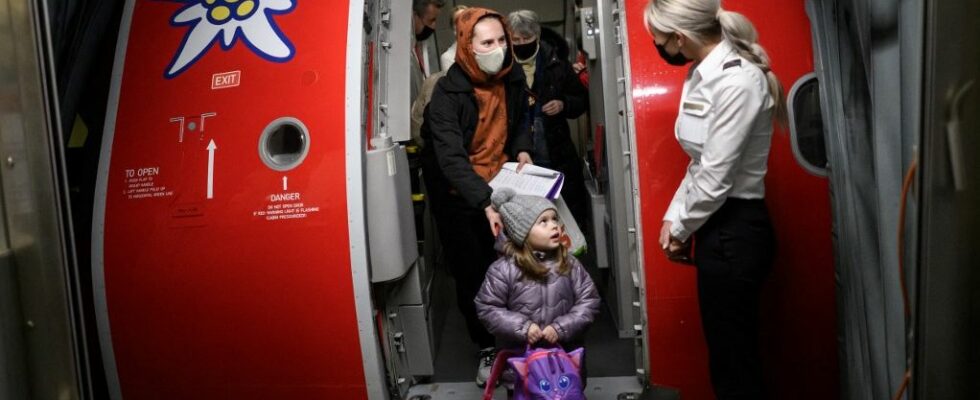Turn around. Switzerland has suspended its participation in a UN program aimed at resettling vulnerable refugees, due to a lack of reception capacity, congested by an influx of people who fled the war in Ukraine, the authorities confirmed on Monday.
“The resettlement program will not be called into question, only admissions will be temporarily suspended,” spokesman for the State Secretariat for Migration, Lukas Rieder, told AFP in an email. He confirms information from the Sunday edition of the daily newspapers NZZ and Time.
Program suspended
the High Commissioner for Refugeesseeks to resettle in third countries some of the most vulnerable refugees living in precarious conditions in their host communities. For 2022, UNHCR had estimated that nearly 1.5 million refugees needed resettlement, although only a fraction of those places were available.
Switzerland, which has a population of 8.7 million, has pledged to resettle 1,820 vulnerable refugees in 2022 and 2023. But time and the NZZ am Sonntag reported that the Department of Justice decided at a meeting in late November to suspend the program.
Never so many asylum seekers and refugees since 1945
Lukas Rieder explained that “strong pressure” on the Swiss asylum system, particularly in terms of accommodation capacity and staff, was behind this decision. About 100,000 asylum seekers and refugees, including more than 70,000 fleeing the war raging in Ukraine, have arrived in Switzerland since the beginning of the year, figures that have not been equaled since the Second World War.
“Therefore, the working group in charge has recommended the temporary suspension of admissions under the 2022/2023 resettlement program,” the spokesperson detailed.
As of mid-December, 641 people had already been resettled under the program, and he said that the approximately 400 refugees, who have already had the administrative green light, will be accommodated until next March. But the others will have to wait.
A decision reassessed in early 2023
This decision will be reassessed in the first half of 2023, said Lukas Rieder. According to Timethe refugees in question are mostly from Afghanistan, Syria and Sudan, and include mainly women, children and people with health conditions deemed particularly vulnerable by UNHCR.

